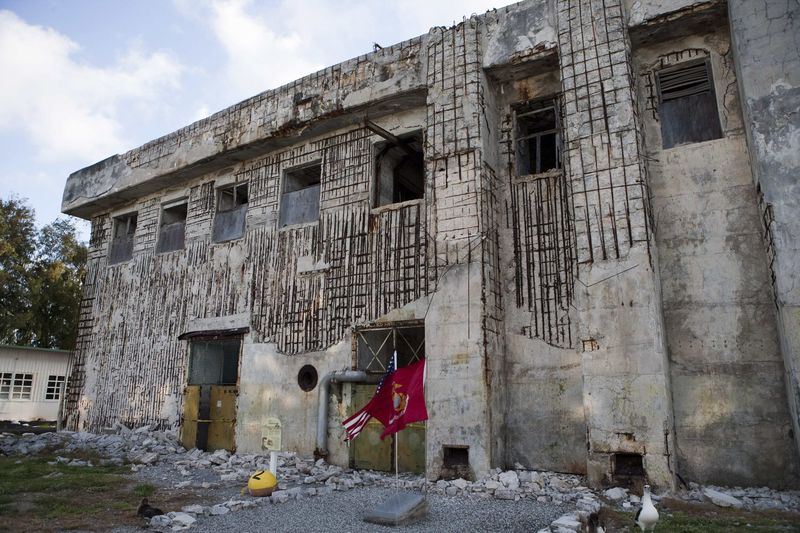By Roberta Rampton
HONOLULU (Reuters) - President Barack Obama on Thursday is set to visit Midway Atoll, the remote coral reef that serves as a reminder of both modern global climate challenges and the dominance the United States has held in the Pacific since its World War Two victory there.
The island wildlife refuge is described by those who have been there as a kind of "Garden of Eden" where the world's oldest-known albatross returns each year to nest and the electric blue ocean teems with fish.
The journey, timed as Obama leaves for his last visit to Asia to meet with Chinese President Xi Jinping and other world leaders, will also serve as a reminder of the American victory against Japanese forces on the island during World War Two.
"It's a signal, it's a message saying the United States is committed to staying in the Pacific, and not sort of backing away," said naval historian Tom Hone, who has studied the infamous Battle of Midway.
Obama's visit will focus on the challenge climate change poses to oceans and the need to expand upon international agreements like the one he announced with Chinese President Xi Jinping in 2014.
Obama has sought to make combating climate change a key part of the legacy of his presidency, which comes to an end in five months.
But ahead of the Nov. 8 election for his successor, less than 5 percent of voters say the “environment” is the most important issue facing the United States today, according to a Reuters/IPSOS poll conducted between July 24 and Aug. 21. Thirty-five percent of voters said climate change "will not impact my vote much at all."
The island visit will seek to show Americans how conservation can help species adjust to changing climate, and book-ends Obama's trip last year to Alaska, where he hiked on a shrinking glacier.
"These aren't 'photo ops' - I think these are real opportunities to help the American people understand," said Carol Browner, a former head of the Environmental Protection Agency who advised Obama on climate issues in his first term.
"He can get a level of attention that nobody else can get,"
Browner said.
Last week, he quadrupled the size of Papahanaumokuakea Marine National Monument to create the world's largest marine monument, protecting the area off the coast of Hawaii from commercial fishing and drilling.
Perhaps more important to voters, Obama's visit will conjure symbolism of American power in the Pacific ahead of his trip to China, a country many blame for a loss of American jobs and economic prowess.
The World War Two Battle of Midway, one of the most-studied battles in military history, tipped the balance of the U.S fight against the Japanese navy.
In June 1942, U.S. forces, tipped by code-breakers that the Japanese navy was planning an attack, sank four Japanese aircraft carriers and a heavy cruiser in a giant air-sea battle.
Many of the military buildings on Midway Atoll have been allowed to decay, and visitors have not been allowed since 2012 because of tight budgets, which dismays Jim D'Angelo, 79, a retired oncologist and history buff in Bradenton, Florida.
"The fact that (American soldiers) went in even though they knew that they were going to die, it just captured my intellect and my emotions as representing the best that America really has to offer," D'Angelo said.

Kevin Foerster, U.S. Fish and Wildlife Service's refuge chief for the region, said the agency would like to be able to open the island to visitors again, but budget constraints and the island's remote location mean its beauty can only be accessed by the internet for now.